As COP 28 finishes, Joel Kelling describes the Anglican contribution.
COP28, the 28th annual Conference Of the Parties (i.e. countries) ended, a day later than scheduled, and with a very mixed response about whether it was a success or not (and for whom).
For me, it was my second experience engaging in the process, I was present at COP27 last year in Sharm el-Sheikh, and provided continuity with that delegation, along with Archbishop Julio Murray, Bishop of Panama, chairman of the Anglican Communion Environment Network and lead Bishop globally on climate justice. Joining us this year were Archbishop Hosam Naoum, as the Primate of the Province that COP was being hosted in; Martha Jarvis, the Anglican Communion’s permanent representative to the United Nations; Nicholas Pande, the global lead on Climate Policy; and Agnes Lam, representing the Anglican Communion Youth Network.
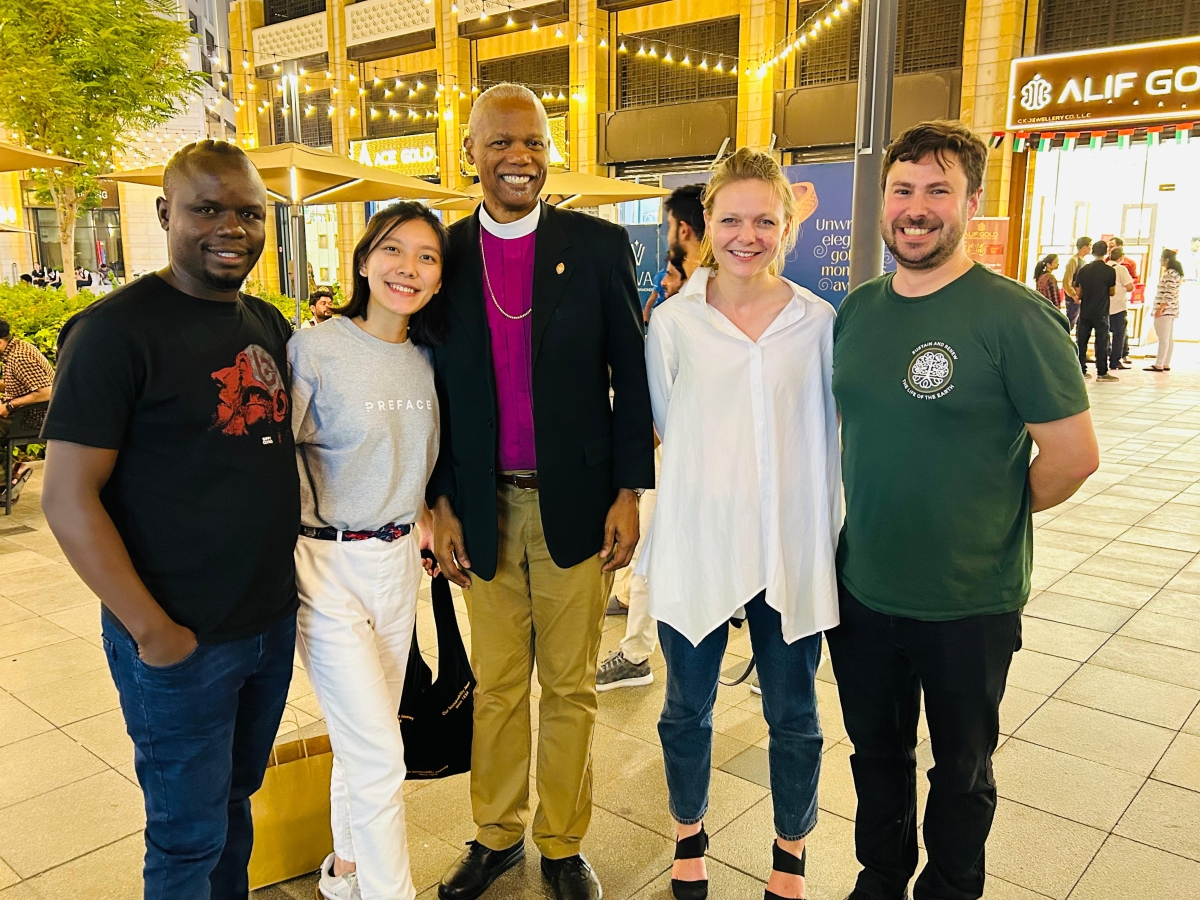
This group was diverse in nature, both geographically and demographically. But what do people of faith, Christians, or Anglicans specifically have to say into this global political space? I think the representative nature of who we are as a worldwide communion helps to answer that – we are present as Anglicans in some of the places most vulnerable to climate change – in the Pacific Island communities and those along the south eastern coast of Africa for example. But we are also present in some of the places most responsible for climate change, in communities in the global north, in England, Canada and the USA, where members of our congregations are energy company executives. We exist as a complex part of the challenges and solutions of this existential crisis and through our moral leadership, have the possibility of a credible voice to work for a just transition away from our reliance on fossil fuels, ensure that the most vulnerable and those who have already lost materially and immaterially are compensated, financed and prepared for the transition that needs to happen, and also that resilience is built in the meantime to prepare communities for the shocks and stresses that climate change is causing. If you would like to read our Call to Action you can do so here.
In this mode, we engaged with the nations present – sitting with representatives from Vanuatu to hear the stories of how they are preparing for the inevitable sea level rise, and that they consider themselves more fortunate than other pacific nations, as they have hilly terrain to move into, whilst the atoll states are having to explore the creation of digital nations, and negotiate with countries like Australia for the right to resettle there as islands are permanently flooded.
We met with other countries too – the Philippines; Ghana; Uganda; Lebanon, the UAE; the State of Palestine and others beside. With the case of Uganda, we ultimately met with the Minister of Energy, herself an Anglican, and were able to pray with her, share our story and listen to the complexity of Uganda’s desire for social and economic growth, their discovery of oil, and how to balance their desire for exploiting that resource with both the impact on the planet, the country of Uganda, and the fact that they are historically not particularly responsible for the climate crisis, so don’t feel that it is fair that they are punished in addition to the existing barriers they have faced in development as a result of historic colonialism. With Archbishop Hosam present it was very good to meet with regional nations, and show that as a church we care deeply about climate justice and creation care, and begin looking at ways of working together to promote solutions.
Nicholas Pande spent much of his time during the conference following the negotiations closely. It was my privilege to engage more with the Faith Pavilion, a presence in the ‘blue zone’ – the main negotiation space – for the first time. The Pavilion was born out of hopes and dreams I shared with other faith leaders last year, that they made a reality – including through the generosity of the Diocese of California in the Episcopal Church in the USA. We were able to participate and host a number of side events within the Faith Pavilion, looking at the details of a Just Transition away from Fossil Fuels and on Religious Resistance to Climate Justice amongst other things.
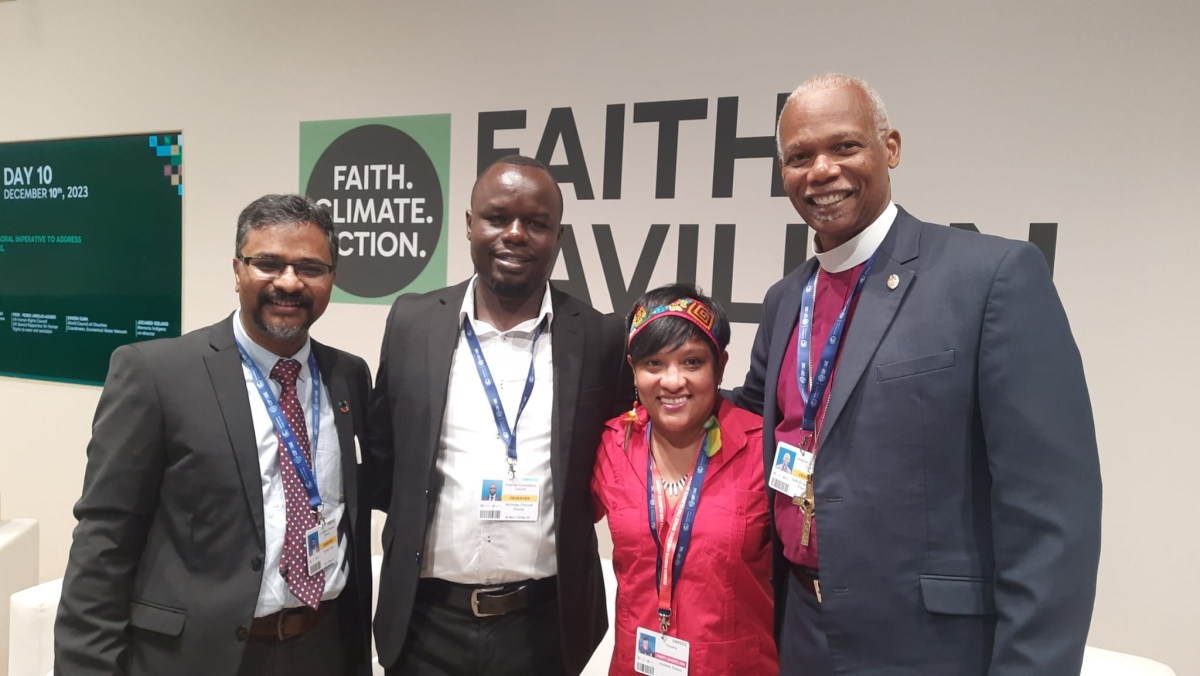
Having the space allowed us to trial some new ways of engaging – with a youth café and a hot topic conversation, where difficult questions could be asked. It provided a space for reflection and prayer at the beginning of each day, and in the in between moments, the opportunity to sit with people of other faiths – from within the Middle East and beyond and begin friendships and discussions for collaboration. This included conservations with the Secretary General of the Muslim Council of Elders, His Excellency Judge Mohammed Abdelsalam on opportunities for support and cooperation on renewable energy solutions for Christian and Muslim communities where we are both present.
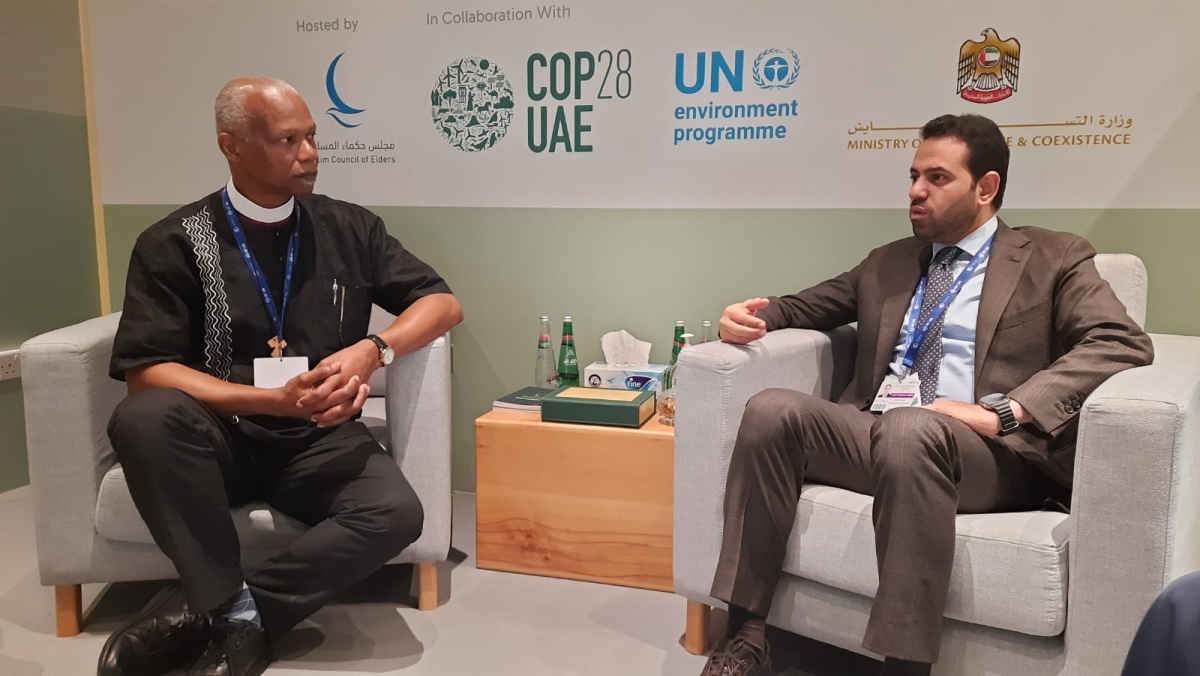
The Faith Pavilion was overseen by the Muslim Council of Elders, who had also hosted a pre-cop gathering of faith leaders at which Archbishop Julio was present, along with Mother Christine Trainor of St. Andrew’s Abu Dhabi, and Father Jim Young of Christ Church, Jebel Ali. Their presence before COP continued into the conference itself, and I am so pleased with the engagement between the Anglican Church locally and not only the global delegation, but with the ecumenical and interfaith spaces too. Christ Church hosted both the interfaith Talanoa Dialogue, and the Ecumenical Church Service.
The Talanoa Dialogue uses the Fijian discourse approach of asking three questions (what is happening, what needs to happen, and how do we get there) about a number of challenging topics, which led to an interfaith statement. Over 100 people from Christian, Muslim, Sikh, Buddhist and other traditions participated in two hours of presentations and discussion groups, which was followed by a delicious meal of vegan food that catered for the variety of dietary restrictions of the religions traditions present. Later in the week Archbishop Hosam led us in an ecumenical service, supported by the Middle East Council of Churches with both local church leaders and those present for COP28 participating. The MECC launched their Climate Statement, which I had helped to draft.
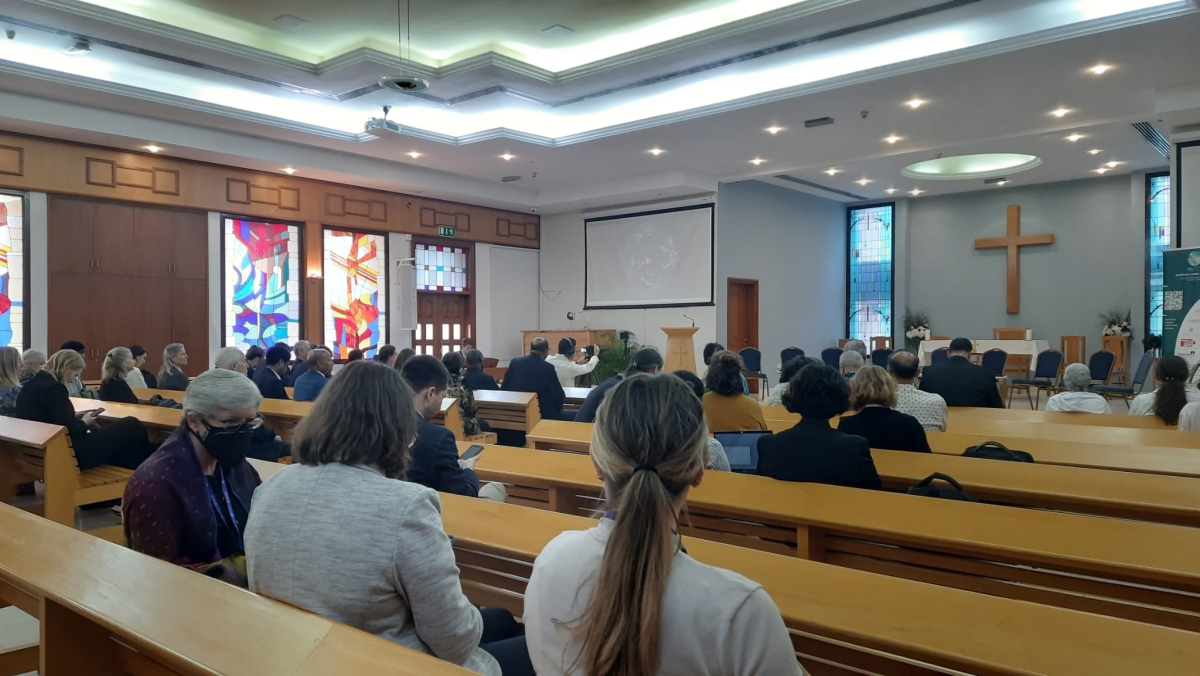
Both Father Jim, Samer, and Jit were incredible hosts, not only for those guests, but for all of us, helping with transportation, and Samer hosting the delegation for a meal at his home in the second week. Samer gave so much of his time (whilst also supporting his regular work in the green zone), both in advance – helping us to choose a hotel, helping organise a pre-COP webinar for the Anglican Communion, and engaging in important discussions around our dependency on fossil fuels, and having the difficult conversations around how we transition away from them.
We passed two Sundays whilst in Dubai, and wonderfully both Archbishop Hosam and Archbishop Julio were able to preside and preach at Holy Trinity Dubai and Christ Church respectively. It was a joy to bring the Communion together, and the Province itself, as this was Archbishop Hosam’s first visit to the UAE. Many of the other Anglicans participating at COP28 were present in Christ Church on the 10th December, and amazed to find such a large and diverse congregation (“are there normally this many here on a Sunday” was a common question, to which the answer was “sometimes more!”). It was a joy and a privilege to participate in such a clear demonstration of the Body of Christ, and for those from further away to glimpse not only the liveliness of the Anglican presence in the Gulf, but its ministry – including the support it offers migrant workers in need, as a distribution was held at the end of the service.
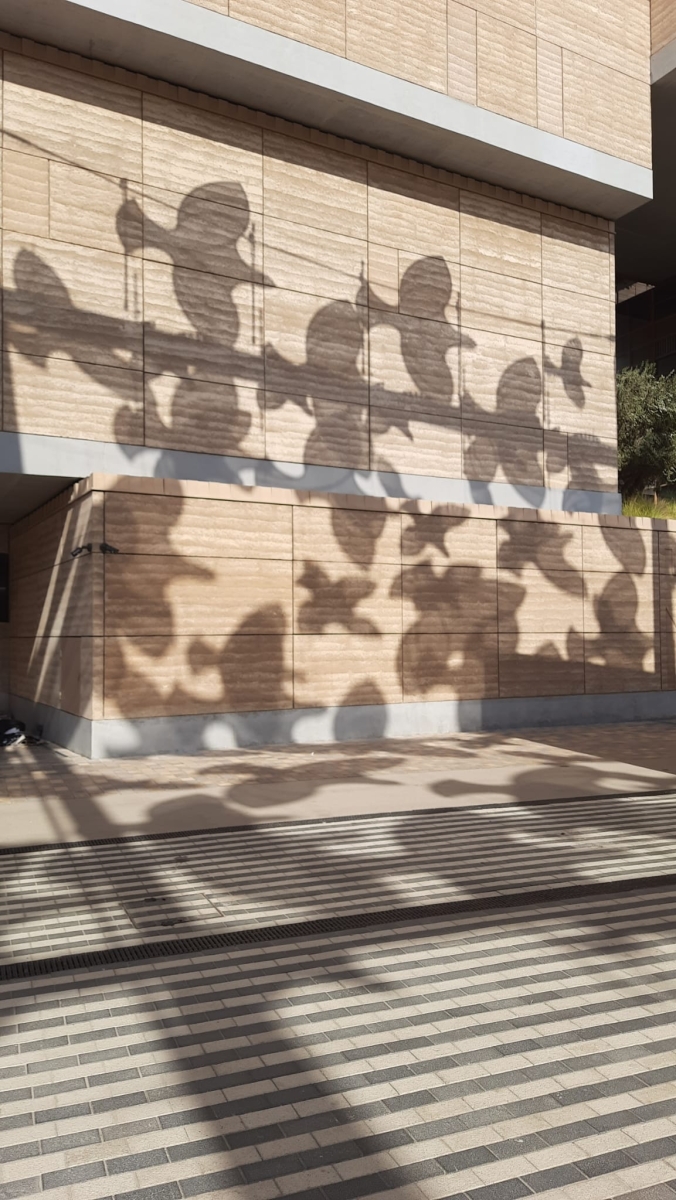
Throughout the two weeks we continued to sit together with other Anglicans and Christians, debriefing together at the end of every day to follow where negotiations, side events, demonstrations and statements were leading, and arranging dinners – hosting as many of the Anglicans present and engaged on one occasion, and sitting with the young Anglicans present as part of the Christian Climate Observers Program as well as Christian agencies such as USPG and Tearfund.
Ultimately our presence as members of the Province or the Communion delegation is as a journey of relationships – friendships built, and ones that need building. Our presence locally and globally in this space is crucial to the successful implementation of the goals ultimately agreed upon at COP28. Its success will be determined not now, but in how we work together to achieve the aims, to actually finance Adaptation, Mitigation and Loss and Damage, fund Nationally Determined Contributions, and stick to the targets to phase out Fossil Fuels, whilst continuing on the journey of development for those historically disadvantaged, and support for those for whom these agreements are too late.
